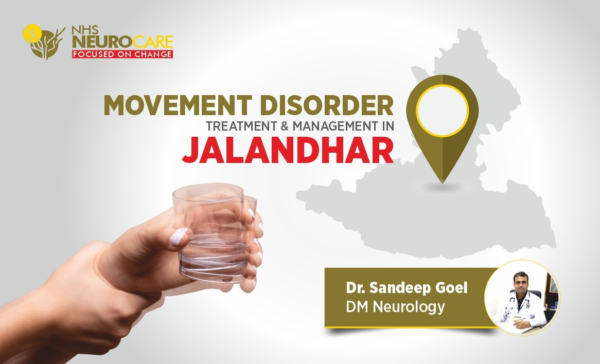Conditions that cause problems with movement can be voluntary or involuntary. Movement Disorder is not caused due to weakness or paralysis of the muscles, it can result from different types of brain injury, such as head trauma, inflammation, infection, metabolic disturbances, and it can even be caused due to side effects of medications. Movement disorders mostly affect speed, fluency, quality, and ease of movement.
There are many such disorders, common types include,
- Ataxia: Impaired balance or coordination due to damage to the brain, nerves, or muscles.
- Dystonia: Involuntary muscle contractions causing twisting and repetitive movements.
- Huntington’s disease: An inherited disease that causes nerve cells in the brain to break down, including the nerve cells that help to control voluntary movement.
- Parkinson’s disease: This is a progressive disorder affecting the nervous system and parts of the body controlled by nerves.
- Tourette syndrome: Disorder that involves sudden twitches, movements, or sounds, which are known as tics.
- Tremor and essential tremor: Involuntary trembling or shaking movements, which may be in one or more parts of the body.
- Chorea: Characterized by repetitive, brief, rapid, irregular involuntary movements. Typically involves the face, mouth, limbs, and trunk. Chorea is similar to exaggerated fidgeting.
- Multiple system atrophy: It’s an uncommon neurological disorder affecting brain systems and progressively worsens. It can also cause impaired bladder function and low blood pressure.
- Myoclonus: It is a condition which causes lightning-quick jerks of a muscle.
- Tardive dyskinesia: It is caused by the long-term use of certain drugs which are used to treat psychiatric conditions, called neuroleptic drugs. This condition causes repetitive and involuntary movements such as grimacing, eye blinking, and other movements.
- Wilson’s disease: It’s a rare, inherited disorder that causes excessive amounts of copper to build in the body, causing neurological problems like tremors or parkinsonism.
Movement disorder affects the ability to move. If somebody observes unusual symptoms contact a neuro expert as soon as possible.
Symptoms
- Stiffness of limbs and trunk
- Bradykinesia
- Akinesia
- Contraction of muscles
- Swallowing difficulties
- Behavioral problems
- Psychiatric symptoms
Treatment of Movement Disorder
Treatment of movement disorders mainly focused on improving symptoms, it includes,
- Medication like Antiseizure drugs
- Physical therapy, occupational therapy, and speech therapy
- Practical and emotional support
- Counseling and evaluation
- Surgery
Movement Disorder treatment center in Jalandhar provides excellent treatment for movement disorders. In many cases movement disorder is not curable as it’s often a chronic condition, the goal of the treatment is to minimize the symptoms. The movement disorder treatment doctor in Jalandhar plays a major role in treating patients affected by a movement disorder. These disorders range from mild to severe, and most of the conditions have similar symptoms. It is important to get an accurate diagnosis. Our experts use the latest medical technologies to help patients.
How does NHS neuro Help?
NHS Neuro Care is a dedicated wing or Department of Neurology that focuses on the advanced, latest procedures & programs to achieve excellence in neurological care, including treatment for Brain, Spine Conditions & Nerve Disorders. NHS Neuro Care has been treating serious neurological conditions like stroke, headaches, epilepsy, and movement disorders among others with a futuristic mindset and cutting-edge techniques.
Contact us
Contact details are provided on the NHS neuro care official website and even appointments can be made directly through the website. You can even clear the queries online, 24-hour services are provided. Contact us either on the number or the email provided.


Nice post. I learn something totally new and challenging on websites
I simply could not go away your web site prior to suggesting that I really enjoyed the standard info a person supply on your guests Is going to be back incessantly to investigate crosscheck new posts
I loved even more than you will get done right here. The picture is nice, and your writing is stylish, but you seem to be rushing through it, and I think you should give it again soon. I’ll probably do that again and again if you protect this walk.